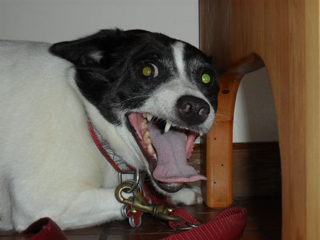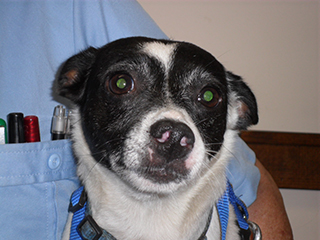|
Pets may often display a number of visible behavioral nuances. If you are experiencing animal behavioral problems at home, please know that you are not alone. Some of these problematic social behaviors can actually stem from a hidden medical illness or ailment, which is why it is important for you to not only be aware of your pet's normal behaviors, but to also note when these actions progress to a troubling stage.
Common pet behavioral problems may include:
- Separation anxiety from the owners or other family pets
- Thunderstorm or noise phobia
- Inappropriate urination
- General aggression toward people or other animals
- Possessive aggression toward people or other animals who may be near the pet's food, toys, bones, or other properties
- Destruction
- Self-mutilation
- Persistent disorderly conduct
- Pest-like activities, such as digging, vocalization and barking, jumping, and play biting
- Neurotic actions like obsessive pacing, chewing, tail chasing, and licking
Before seeking the advice of an animal trainer, it is best to first consult with one of our trusted veterinarians. We will ask you questions about your pet's behavior, lifestyle, and environment, as well as conduct a physical exam to help us determine the root cause. In some cases, we may proceed with further veterinary diagnostic testing that could lead us to valuable answers regarding your pet's health. Whether your pet is in need of medical treatment or simply isn't getting enough exercise, we are dedicated to providing you with solid answers and solutions to help improve the wellbeing of your companion.
Other causes of small animal behavioral problems may include:
- Stress
- Sedentary lifestyle (not given efficient amount of exercise or energy release)
- Confinement to tiny living quarters
- Isolation from socialization with people or other pets
- Inconsistencies in everyday schedule, discipline (unpredictable, cruel, or contradictory punishments), and training
- Malnourishment
- Deprivation from sleep
- In heat or roaming to mate
|


|